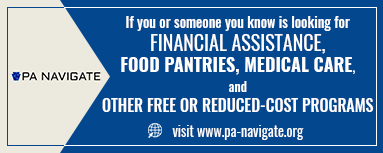Vaccines have been a cornerstone of public health for over a century. They have saved millions of lives over that time and helped eradicate deadly diseases like smallpox and polio. Despite their remarkable success, vaccines continue to be a subject of controversy and misinformation. Here at BCHIP, we believe that Bucks County residents should have access to safe and effective vaccines.
Here are reasons why vaccines are safe.
Extensive Testing and Approval Process
Vaccines undergo an extensive and rigorous approval process before reaching the general public. This process involves multiple phases of testing to ensure both safety and efficacy. This includes preclinical testing, usually on animals. If the vaccine appears safe, it moves onto clinical testing where larger and larger groups of people use it. Their responses are studied to see if the vaccine is safe and effective.
Regulatory agencies like the U.S. Food and Drug Administration (FDA) carefully review the data from clinical trials before granting approval. They assess the vaccine’s safety, efficacy, and manufacturing quality.
Ongoing Monitoring
The process doesn’t end with approval. Vaccines are continuously monitored for safety through multiple systems, such as the US Vaccine Adverse Event Reporting System (VAERS). Healthcare professionals and the public can report any adverse events related to vaccines, and this data is closely analyzed to detect any unusual patterns or safety concerns.
Thorough Manufacturing Standards
Vaccine production adheres to stringent quality control and manufacturing standards. The World Health Organization (WHO) and other regulatory bodies oversee vaccine production facilities to ensure they meet these standards. This helps guarantee that vaccines are produced consistently and safely.
Herd Immunity
Vaccines protect individuals and contribute to a concept known as herd immunity. When a large portion of a population is immune to a disease, either through vaccination or previous infection, it creates a barrier that prevents the disease from spreading quickly. This protects those who cannot be vaccinated due to age, medical conditions, or allergies.
Historical Success
Vaccines have a track record of success in preventing and eradicating diseases. Smallpox, a once-devastating disease, was completely eradicated thanks to the smallpox vaccine. Polio is nearing global eradication, and the cases of many other conditions, such as measles and rubella, have been significantly reduced.
Expert Consensus
The scientific and medical communities overwhelmingly support vaccination. Leading health organizations, including the World Health Organization (WHO), the Centers for Disease Control and Prevention (CDC), and the World Medical Association, advocate for vaccines and endorse their safety. These organizations rely on extensive research and expertise to make their recommendations.
Adverse Events Are Rare
While vaccines can cause side effects, serious adverse events are extremely rare. Most side effects, such as soreness at the injection site or a low-grade fever, are mild and temporary. Severe adverse events occur in a tiny fraction of cases. These cases are thoroughly investigated, and the benefits of vaccination are weighed against the risks.
Because of social media and the COVID-19 outbreak, there has never been more false information and accusations about vaccine use so readily available. Vaccines are a safe, crucial tool in preventing deadly diseases and protecting our community. Your doctor is your first line of information and can help you make informed decisions about vaccine use for yourself and your family.
Do You Have Questions or Concerns About Vaccines?
If so, let’s start the conversation. Call the Bucks County Health Improvement Partnership at (267) 291-7882 or complete our online contact form.





